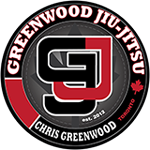17 Nov Jiu Jitsu can contribute positively to addressing self-entitlement
Practicing Jiu Jitsu can contribute positively to addressing self-entitlement issues. Here’s how:
1. Humility Through Training: Jiu Jitsu exposes practitioners to a constant learning curve. Everyone, regardless of rank, experiences challenges and defeats on the mats. This humbling experience helps individuals recognize their limitations and fosters a mindset of continuous improvement.
2. Facing Adversity: Regular sparring sessions (rolling) in Jiu Jitsu expose practitioners to unpredictable situations where they may not always achieve the desired outcome. This firsthand experience of facing adversity encourages humility and dispels notions of entitlement.
3. Respect for Others: The culture of respect in Jiu Jitsu, where practitioners bow on and off the mats, show respect to instructors and training partners, emphasizes the importance of treating others with consideration. This respect counters self-entitlement by promoting a cooperative and positive training environment.
4. Earning Progression: Advancing through the belt system in Jiu Jitsu is earned through consistent effort, skill development, and time invested. Unlike entitlement, which implies a belief in unearned privileges, Jiu Jitsu reinforces the value of hard work and merit.
5. Learning from Failure: In Jiu Jitsu, failures and mistakes are part of the learning process. Embracing these setbacks with a growth mindset helps individuals move away from a sense of entitlement, as they understand that progress comes from learning and adapting.
6. Accountability: Jiu Jitsu practitioners are accountable for their progress and performance on the mats. This sense of accountability encourages individuals to take responsibility for their actions, fostering a mindset focused on personal growth rather than entitlement.
7. Community Influence: The community aspect of Jiu Jitsu encourages mutual support and camaraderie. Engaging with a diverse group of practitioners fosters an understanding that everyone is on their unique journey, promoting empathy and diminishing a sense of entitlement.
8. Focus on Continuous Improvement: Jiu Jitsu emphasizes the journey of continuous improvement. Rather than expecting immediate success or recognition, practitioners learn to appreciate the process and the small victories along the way, shifting away from entitlement.
9. Disciplinary Environment: Jiu Jitsu academies often have a disciplined atmosphere. Adhering to the rules, etiquette, and guidelines set by instructors reinforces the importance of respecting authority and working within a structured framework.
10. Encouraging Others: Supporting fellow practitioners, especially those who may be struggling or newer to the art, helps develop a mindset of generosity and encouragement. This focus on uplifting others contributes to a positive community and diminishes self-entitlement.
In summary, the principles embedded in Jiu Jitsu training, including humility, respect, and continuous improvement, can serve as valuable tools for individuals seeking to address and overcome self-entitlement issues. The martial art’s culture encourages a mindset focused on personal growth, accountability, and positive interactions with others.

